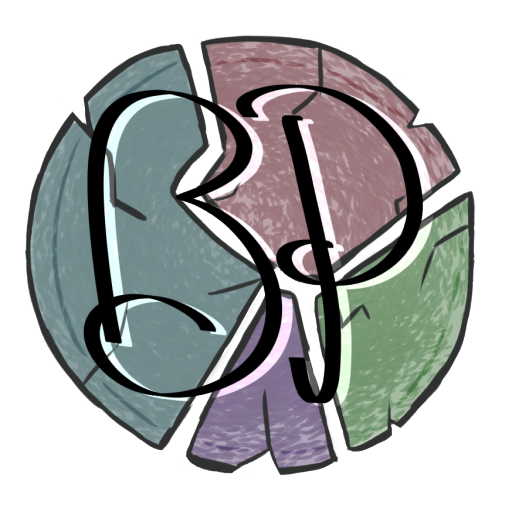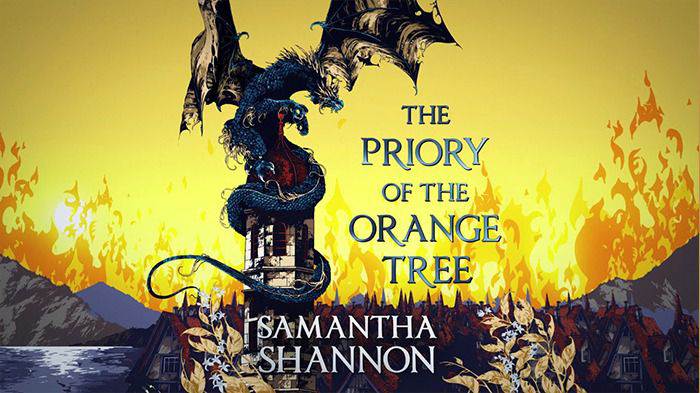When I placed Samantha Shannon’s The Priory of the Orange Tree on my Christmas list, I was unaware that its page count surpassed 800, oblivious of its maps and timeline, ignorant of the glossary and character index. I also did not anticipate the companionship and thrilling escapism the novel would provide me. I first happened upon the cover, a tremendous sapphire dragon is curled around a church spire against a backdrop of smoldering orange, while googling queer fantasy novels. The premise given was vague but caught me nonetheless: A queendom endangered by assassins, a handmaid with forbidden magic, a warrior woman whose ambitions are imperiled by a rash decision and “forces of chaos rising from their sleep.”
When I discovered the novel technically qualified as a tome, I knew I had to pace myself, approach my reading as a marathon, not a sprint. I may have started in late summer and finished just last week, but from the first chapter I was desperate to gulp it down. Shannon has imagined an incredible world, where women are the central gears moving the story forward, where realism is not code for exclusivity, where representation is a given.
The story is told through four perspectives, though storylines may be the more operative word since the narrator is a third person, with access only to the thoughts and events that pertain to the character being followed in that chapter. Tané is the dragon rider in training and her midnight test of courage sets off a chain reaction; Ead must navigate politics of court, the pull of her heart and the expectations of her duty, while silently protecting a Queen; Lord Arteloth is sent to play ambassador in a hostile kingdom and uncovers a frightening truth; Niclays is an alchemist in exile, haunted by his past and terrified of his future.
Because Shannon has balanced her characters and their conflicts on opposite sides of her world, the rotating storylines enhance narrative diversity while entangling the reader in the cosmic puzzle of her plot as each character’s crossroads reveals a new piece. The reader isn’t grounded in one religion, mind, or corner of the world. There’s too much to discover. Shannon is not afraid to uproot her protagonists, and she knows that their survival and growth into the heroes the world needs, requires movement, necessitates challenges. All of the characters confronted my hopes and expectations in different ways, catapulting me to a conclusion that will go down as one of the most honest and satisfying endings I’ve ever read.
This world and its people may not be real, but the messaging is impactful. There is an importance placed on community for an understanding of the self and an enrichment of life. The fact that there is no singular hero goes against the savior trope of fantasy and underscores the idea that diversity of experience and skill set is needed for people to accomplish things greater than themselves. There is commentary on the absurdity of man-made boundaries in the face of great ill, and the conflicts that drive the plot arise from differences in religion, belief, power, and ambition, not from the particulars of identity. Speaking of identity, three of the four primary protagonists are people of color, Ead, Tané and Arteloth, and two are queer. These are simple naturalized facts in this world, and the way Shannon handles their narratives with depth and respect makes her novel a rewarding read. While the threads of inspiration Shannon took from Earth to build Virtudom are often clear, she thankfully reinvents and honors rather than exploits.
Ultimately, convincing, breathtaking fantasy exemplified by The Priory of the Orange Tree requires a reader to suspend disbelief. For characters and their tale to linger in the mind of your audience, stakes must feel real; the reader must be able to see themselves yet step outside of themselves. For this, the cast must be reflective of the real world, and this is why fantasy owes it to literature and its readers to be diverse and reflective of the human experience. If you are looking to feel that familiar fire for a novel, the spark that caught when you first discovered the escape a book can offer and wish to do so with a text that satisfies your social principles at the same time – I’m sure there’s a copy near you.

